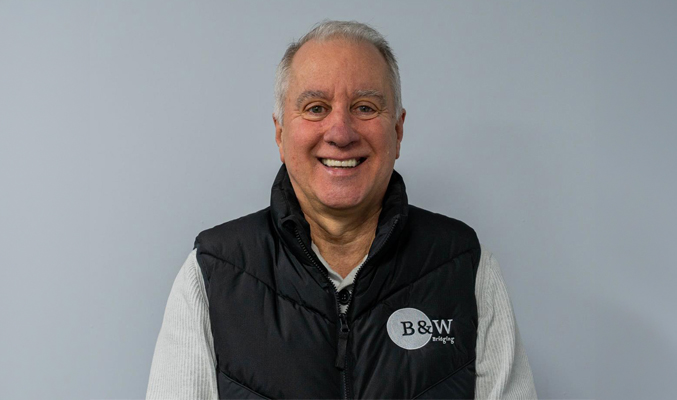‘Don’t be afraid to be yourself and let others know what’s important to you’
By Tony Sanchez

This interview appeared first on Specialist Finance Directory
In our latest Women in Finance Interview, Tony Sanchez speaks to Maria Harris, Director at Digital Cat Consultancy Ltd who provide digital and fintech expertise to the mortgage industry.
Previously the Director of Intermediary Lending at Atom bank where she designed, built and launched the first fully digital mortgage in the UK.
With over 25 years’ experience in management, Maria has held roles across a number of sectors including travel, utilities and more recently in financial services where she won the inaugural Women in Finance Award for services to banking.
What brought you into financial services?
I’d been managing contact centres for around 10 years in travel then utilities when I was approached about a talent recruitment programme that HBoS were running to bring in experienced managers from other industries.
I started off managing an intermediary processing centre for Halifax in 2006 and got on so well with the intermediary team and their brokers that I was invited to join intermediary distribution and the rest as they say is history.
What do you think makes a successful leader? And in particular women leaders?
The most successful leaders I’ve worked with have shared similar traits regardless of gender.
They’ve tended to have the gift of being compelling and inspirational when articulating a vision, in a way that makes you want to get on board and follow them anywhere.
They’ve also had excellent interpersonal skills such as being genuine and authentic people that you can relate to, they’ve been the best listeners on both a personal and an industry level, and they’ve been the leaders who most trust their team to be good at what they do.
Having the awareness and an appreciation that you don’t have all the answers so that often the best ideas and solutions come from team members or from collaboration across teams is a rare skill.
I guess that traditionally that level of empathy, insight and perceived ‘softer skills’ have been seen as more female traits but it feels like they’re being more recognised now as strong leadership traits.
What are the biggest barriers you have faced in your career in financial services?
The lack of female role models and women or men in senior positions who will advocate for you or push you for that next opportunity has been a difficult one for me and something that I hadn’t experienced in the other industries I’d worked in.
It feels like FS has taken a longer time to realise how big an issue the gender and diversity gap is and we still don’t have nearly enough diversity in CEO, Exec or board roles who can mentor, role model and open doors for the next generation of stars coming through.
I’ve been lucky that my network of industry colleagues both male and female have been supportive and given me a platform to develop my own career but also to raise awareness.
If you could tell your younger self one thing you know about business now, what would it be?
I would tell myself that the success and strength of any business is the sum of its people. You don’t have to try and do it all yourself.
Having a team or a network who work well together and collectively have the right mix of skills and knowledge is pure magic when it happens.
What’s your own personal mantra?
That it’s good to be different. Don’t be afraid to be yourself and let others know what’s important to you and what your values are.
Wearing a work persona all of the time is exhausting and it gets in the way of achieving what you want to do – so be unique and be proud of it.
What do you think is key for finding a successful work-life balance?
I wish I knew the answer to that one! I don’t think I’ve ever really found it but after a lot of soul searching and grown up conversations with my husband, we agreed early on that it would be better for our family if he went part time and took on the main parenting role while I worked away during the week.
Being a weekend mum is hard, especially when your children are small, and the guilt you put on yourself can be horrendous but now my children are grown up and tell me what it was like from their perspective, it feels worth it.
One of my proudest moments was my 22-year old daughter telling me how inspired she was by what I’ve done to disrupt the industry and for winning my first Women in Finance Award.
Having your kids tell you ‘you rock’ is priceless.
What’s one key leadership lesson you’ve learned along the way?
The one that I still live by today – to pay it forward.
Always take the time to coach, mentor, and support other people to achieve their own dreams and aspirations.
A good manager can be the reason someone dies or thrives in their job and the impact that you can have is immeasurable.
I still have people who worked for me more than 20 years ago but remember how I helped them or made them feel so the ripples you create can last a really long time.
What advice do you have for women aiming for leadership positions?
Invest in your network, get yourself noticed and find great advocates!
Almost all of the opportunities I’ve had have come from contacts in my network who know how passionate I am about people, customer experience and using tech to disrupt the industry.
They’ve introduced me to other people and firms who share those passions and those introductions have led to opportunities to speak at events, get involved in projects or even in starting new roles.
What do you think is holding women back?
That’s a tough question as I don’t think this is just about women.
We have a real lack of diversity across all the senior roles in FS and even though the industry is constantly changing, it also weirdly stays the same.
If you look at most of the mainstay banks, lenders and distributors, there hasn’t really been much change in the senior teams who are running those businesses.
New opportunities have tended to be in the fintech and start up challenger space and even some of those have been break aways from the incumbents.
We have so much talent coming into and coming up through the industry but they’re not making it into those senior roles yet.
Maybe that will start to change when the market is growing again and new roles are created or the current senior teams starting moving to their next roles.
Do you think there is still a glass ceiling?
I read a great piece of research last year from the Chartered Management Institute which described the current situation as a glass pyramid.
They found that 66% of junior management roles were held by women but only 26% of executive management role holders were female and I think those numbers are probably even worse in Financial Services.
When we still have headline news that a tier one bank has appointed its first female CEO or that an industry trade body has appointed its first female chair, then it’s pretty obvious that we still have a problem.
The fact that we’re even leading with news of appointments in terms of gender rather than the quality of the appointment reflects where the industry is.
What are your thoughts on the Women in Finance Charter?
I think it’s pretty sad that we’ve had to introduce a charter because UK business couldn’t sort this out itself.
There were a number of equality and women on board groups set up after the Sex Discrimination Act came in during 1975 but after 40 years, we still have more CEOs called David or Stephen in the FTSE 100 than we do women.
As much as I’m not a fan of quotas and wouldn’t want to see one form of discrimination replaced with another, something has to change and ultimately what gets measured (or mandated) gets done.
The charter has thrown a great spotlight on the scale of the issue and the stats make for dismal reading which will hopefully galvanise the industry to make the changes we need.
How do we encourage more women into financial services?
I genuinely don’t think we have a problem getting women into the industry.
The number of women in entry level bank jobs has been well balanced for a long time and the number of female financial advisors is growing steadily.
We can always do more with schools and education around financial services and we definitely don’t do enough to promote the industry as a great place to work but for me, it’s getting women into management roles we need to work on.
Having the right development programmes, coaching and mentoring in place within organisations but also creating the right culture within management teams so that new to role managers can be effective and thrive.
I’ve heard so many stories from talented and ambitious women who leave their jobs because they don’t feel that they can break into the next level or that if they do, they won’tl fit in with the management culture.
The gender pay gap is only second worst to the construction industry. What can organisations do to address this?
Boards and executive teams need to fix the glass pyramid.
The only way to get true balance is to have an equal split of roles and pay points at every level from board downwards.
The Women in Finance Charter has shown that the biggest gap in pay is due to the overwhelming number of men holding those senior and higher paid roles so until we have more women round the exec table and in the boardroom, we’ll never get to parity.
It’s disappointing that the pay gap hasn’t seen a material change since the charter launched in 2016 but there is growing pressure on all firms to demonstrate their commitment to diversity, equality and sustainable business models across a number of social and economic factors so closing the gender pay gap should be high on that list of priorities.










You must be logged in to post a comment.